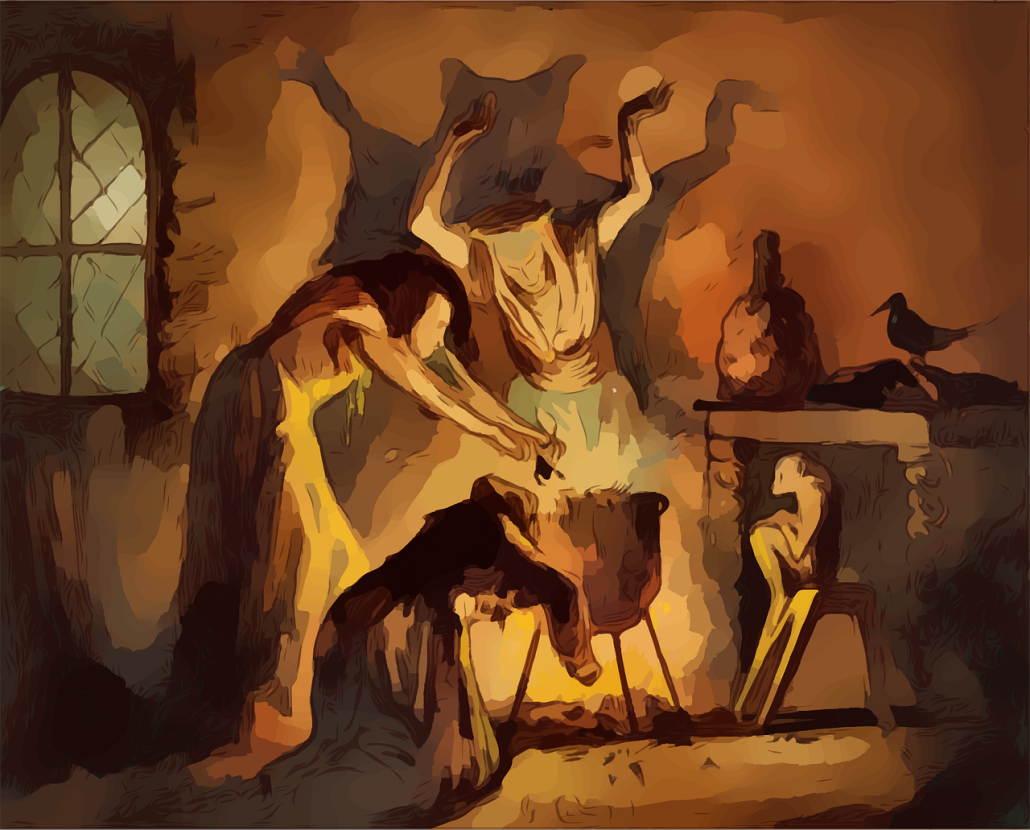What You Need to Know About Backlinks
Taking care of my new-ish website is of the many items that distract me from writing. This week, I tackle the topic of who’s linking up with my site or backlinks.
Backlinks, as you probably know guessed, are links from other sites to yours. They’re good to have; after all, why would someone link to your site if they weren’t completely wowed by your accomplishments? Search engines love to see them, and they’re one of Google’s top three ranking factors built into its algorithm. You want as many backlinks as you can get without resorting to black hat tactics, right?
Well, that’s how I used to think.
Like Witches, Dorothy, There are Good and Bad Backlinks

Cooking up some links. / squarefrog/Pixabay
I subscribe to a few SEO resources and have learned a lot about the lack of black-and-white rules when it comes to SEO. There’s a lot of gray, even in areas you’d think are pretty solid. Backlinks are one of them.
It turns out that certain backlinks can be viewed as “toxic” by the search engines (really, Google continues to dominate here) and make your site appear less than splendid to the almighty algorithms. According to the Semrush Blog, these include sites that link to you just because they can. There are sites set up just to link out to other websites
Why would anyone do this? They’re probably spam sites meant to rank, even temporarily, to steal information from unsuspecting shoppers. Or worse, they could be attempts to upload malware to your site. Be sure you have a sturdy security tool running on your site!
Backlinks can carry malware to upload to your site – another reason to make sure your website has good security through your host or a tool/plugin from a reputable developer.
Examples of other toxic backlinks include:
- Sites that aren’t relevant to yours
- Sites that aren’t indexed by Google, which includes those on the Dark Web
- Links that appear in footers
- Sponsored links
The last two surprised me. I consider allowing footer links to be a professional courtesy between people who do web-related business with one another. And if sponsored links are labeled as such, what’s the harm if they aren’t from spammy sources?
Good, or quality, backlinks are those that are considered (1) relevant to the material you’re publishing, (2) from authoritative sources, and (3) as Semrush puts it “editorially placed as a result of someone finding your content valuable and choosing to link to it.”
The Best Backlinks are “Editorially Placed”
Where backlinks come from is a key factor that search engines look at. If they don’t recognize the link as at least authentic, they don’t like it. Their ideal is a well-placed link to a respected authority. That’s why you’ll see lots of SEO articles echoing Joost De Valk, the creator of the Yoast SEO tool, and Matt Cutts, who headed Google’s spam team for many years.
Fun fact: Matt Cutts knows so much about controlling SEO that his Wikipedia page is unsure about what year he was born or got married!
It’s also a good sign if links are placed where they logically belong. From what I’ve read, search engines don’t want to be fooled by links placed by AI tools, which come awfully close to black-hatting. I don’t know if AI tools can make editorial decisions like where to place links or if that capability is being built.
It’s kind of ironic, considering the search engines are involved in AI tools. Google has its Bard, and Bing uses several AI tools with different names, according to The Verge. But if search engine chieftains don’t want even their own AI tools to make too many content-related decisions, that’s A-OK by me.
How Do I Find Backlinks on My Site?

“Where did all these links come from?” / geralt/Pixabay
There are several tools, some of them free or with free trials, that check for backlinks to your site and analyze their purity (my description, not theirs). Here are some to try out:
These services scan your website and quickly identify who else out there is linking to it. They’ll advise you, usually on a numeric scale, whether or not they’re helping or hurting your site’s rankings and, if you aren’t ranking all that high, its trustworthiness and value.
From what I read, it takes about a month or so for Google to disavow, or erase, backlinks you tell it you want off your site. I don’t know about the other search engines, though. Much of the literature I come across is highly focused on Google.
Is This Backlink Effort Worth Your Time?
Yes, it is. In my opinion, toxic backlinks are enough of a concern to check out at least a few times a year, especially if your site is in growth mode. And that applies to all websites.
Checking your backlinks to see if they’re helping or harming your site is nearly as imporant as ensuring your website is secure.
If you’re attracting traffic, you’re probably attracting backlinks to your site, even if you aren’t actively asking for links. It’s worthwhile knowing if they’re helping or possibly harming your site’s performance. I’d say this is up there with ensuring your site’s security.
The best way to get solid traffic to your site is to make sure it’s got good content, of course. I’m ready to support your web content, including pages and blogs, as well as outreach through newsletters and social media messaging. Contact me today to talk about it.



